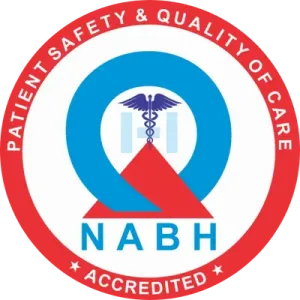Chronic Kidney Disease (CKD): Causes, Symptoms, and Treatment
The kidneys play a crucial role in maintaining overall health by filtering waste, balancing fluids, and regulating blood pressure. When kidney function declines over time, it leads to a condition known as Chronic Kidney Disease (CKD). This is a progressive condition that, if left untreated, can result in kidney failure, requiring dialysis. Understanding the causes, symptoms, and treatment options can help in early detection and better management.
Understanding Chronic Kidney Disease (CKD)

Common Causes of Chronic Kidney Disease
1. Diabetes (Diabetic Nephropathy)
High blood sugar levels can damage the small blood vessels in the kidneys, affecting their ability to filter waste effectively. Over time, this can lead to kidney failure if not managed properly.
2. High Blood Pressure (Hypertension)
Uncontrolled high blood pressure puts extra stress on the kidneys, leading to gradual damage and reduced function.
3. Glomerulonephritis
This condition causes inflammation of the kidney’s filtering units (glomeruli), leading to long-term kidney damage. It can occur due to infections, autoimmune disorders, or other underlying diseases.
4. Polycystic Kidney Disease (PKD)
A hereditary condition that results in the formation of multiple fluid-filled cysts in the kidneys, affecting their ability to function properly.
5. Kidney Infections (Pyelonephritis)
Repeated kidney infections can cause scarring, which may eventually lead to CKD.
6. Obstruction in Urinary Tract
Blockages due to kidney stones, an enlarged prostate, or other structural issues can cause pressure buildup and damage the kidneys over time.
7. Long-Term Use of Certain Medications
Overuse of painkillers (NSAIDs) and certain antibiotics can be harmful to the kidneys if taken for extended periods.
8. Autoimmune Diseases
Conditions like lupus and IgA nephropathy can cause the immune system to attack the kidneys, leading to inflammation and reduced function.
9. Smoking and Excessive Alcohol Consumption
Both smoking and excessive alcohol use can worsen kidney function by increasing blood pressure and damaging blood vessels.
10. Aging and Family History
Elderly individuals and those with a family history of kidney disease are at a higher risk of developing CKD.
Recognizing Symptoms of CKD
1. Fatigue and Weakness
Due to reduced production of red blood cells, anemia can develop, leading to tiredness.
2. Swelling (Edema)
Fluid retention can cause swelling in the feet, ankles, hands, and face.
3. Changes in Urination
- Increased or decreased urination
- Presence of bubbles or foam (indicating protein leakage)
- Blood in urine
4. Shortness of Breath
Fluid buildup in the lungs may cause breathing difficulties.
5. Nausea and Vomiting
The buildup of toxins in the body can lead to digestive discomfort.
6. High Blood Pressure
CKD can lead to increased blood pressure, worsening kidney function.
7. Loss of Appetite and Weight Loss
A metallic taste in the mouth and nausea can reduce appetite.
8. Muscle Cramps and Bone Pain
Imbalance of electrolytes can cause muscle cramps, while weak bones may lead to pain.
- Diagnosing Chronic Kidney Disease
- Early diagnosis helps in slowing CKD progression. The following tests are commonly used:
1. Blood Tests
- Serum Creatinine & eGFR: Measures kidney function.
- Blood Urea Nitrogen (BUN): Indicates waste accumulation in the blood.
2. Urine Tests
- Urinalysis: Identifies protein, blood, or infection.
- Albumin-to-Creatinine Ratio (ACR): Detects early kidney damage.
3. Imaging Tests
- Ultrasound, CT scans, or MRIs help detect structural abnormalities in the kidneys.
4. Kidney Biopsy
- A small tissue sample is examined to assess kidney damage.
Treatment Options for CKD
While CKD has no permanent cure, proper management can slow its progression and improve quality of life.
1. Lifestyle Modifications
- Control Blood Sugar & Blood Pressure: Essential for preventing further kidney damage.
- Low-Sodium, Kidney-Friendly Diet: Reducing salt, processed foods, and protein intake can help.
- Stay Hydrated: Drinking adequate water is beneficial but should be done as per medical advice.
- Quit Smoking & Limit Alcohol: Helps in maintaining overall kidney health.
2. Medications
- Doctors may prescribe:
- ACE Inhibitors or ARBs: To lower blood pressure and protect kidney function.
- Diuretics: To reduce fluid retention.
- Erythropoietin (EPO): To treat anemia.
- Phosphate Binders: To control phosphorus levels in the blood.
3. Dialysis
- When kidney function falls below 15%, dialysis becomes necessary:
- Hemodialysis: Blood is filtered through a machine.
- Peritoneal Dialysis: The abdominal lining filters waste within the body.
Preventing Chronic Kidney Disease
- Regular Health Check-ups: Monitor kidney function if you have diabetes or hypertension.
- Maintain a Balanced Diet and Exercise Routine: Helps in reducing the risk of CKD.
- Avoid Overuse of Painkillers: Use medications responsibly.
- Manage Stress Effectively: Chronic stress can contribute to high blood pressure, affecting kidney health.












